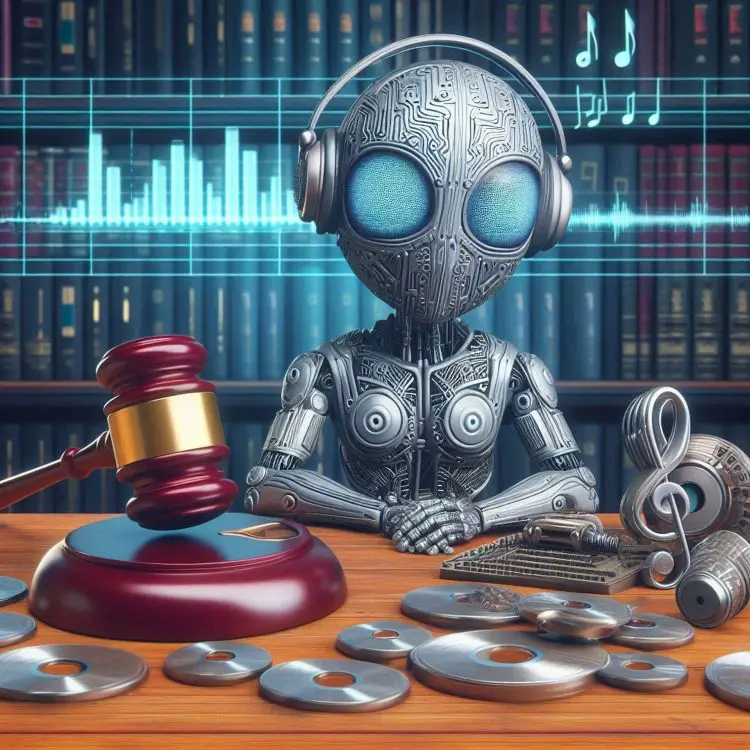The RIAA lawsuit against AI music creators Suno and Udio centers on allegations of significant copyright infringement. The Recording Industry Association of America (RIAA) represents major record labels like Universal Music Group, Sony Music Entertainment, and Warner Records. These labels collectively hold the rights to a vast catalog of copyrighted sound recordings produced by various artists across genres and eras.
The RIAA contends that Suno and Udio, two prominent AI music creation companies, engaged in unlawful practices by using copyrighted music recordings without obtaining proper licenses or permissions. This unauthorized use allegedly occurred during the process of training their AI models.
Name that tune 🎶!
Sound familiar? That's because @suno_ai_ is training AI on copyrighted works…
🎧: https://t.co/GnRxCA0rDc
🎧: https://t.co/lr3Z7tHmyB
🎧: https://t.co/zXjPi68lJFLearn more about our legal action against Suno: https://t.co/LOFOSrRp9M pic.twitter.com/OmF7iUqAd7
— RIAA (@RIAA) June 24, 2024
RIAA lawsuit: Did Suno and Udio AI train their AI with copyrighted data?
The lawsuits accuse Suno and Udio of copying a large amount of copyrighted music into their AI systems. They claim this was done to teach their AI models how to create music that sounds like existing songs. According to the RIAA, this copying and using of copyrighted material without permission is against the law. Here are some proofs from the RIAA:
The RIAA’s legal strategy focuses on demonstrating:
- Mass infringement: Evidence that Suno and Udio systematically copied and used copyrighted recordings without authorization.
- Commercial impact: How the AI-generated music competes directly with original recordings in the market, potentially devaluing the copyrighted works.
The RIAA’s lawsuits aim to achieve a few things: First, they want the court to confirm that Suno and Udio broke copyright laws. Second, they’re seeking court orders to stop Suno and Udio from using more copyrighted recordings in the future without permission. Lastly, they’re asking for financial compensation for the alleged infringements, which could be substantial depending on the number of songs involved.
Suno and Udio’s answer to allegations
Suno and Udio argue that their AI technology is designed to create new music, not to copy existing songs. They claim their AI models generate original compositions based on general patterns, not specific copyrighted works. However, the RIAA disputes this, arguing that the AI-generated music too closely resembles original recordings, raising concerns about copyright violations.
@RIAA response to statement of @suno_ai_ CEO Mikey Shulman. pic.twitter.com/fxWTg7ZGZj
— RIAA (@RIAA) June 24, 2024
BBL Drizzy AI song is where all start
The song “BBL Drizzy,” created by Udio using AI, has sparked attention in the RIAA lawsuit. This AI-generated track gained popularity for mimicking the style of well-known music, showing AI’s ability to create music that sounds like established artists.
However, the RIAA claims Udio used copyrighted material without permission to train its AI, which led to the creation of “BBL Drizzy” and similar songs. This is seen as a violation of copyright law because Udio allegedly didn’t get licenses from the original artists or their record labels.
The RIAA’s lawsuits against Suno and Udio underscore broader debates about the intersection of AI technology and creative industries. The legal outcomes will likely shape future practices and regulations governing AI’s role in music creation, setting important precedents for digital innovation and copyright protection.





